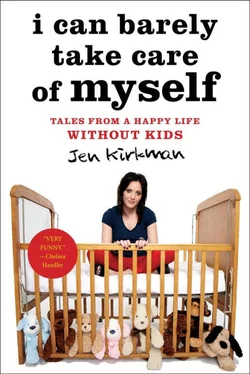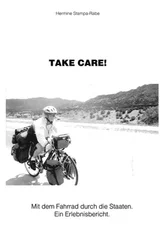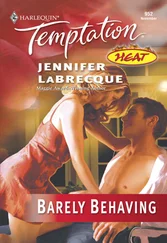I couldn’t even really wear Spanx anymore. The Spanx weren’t strong enough to suck anything in. It was just a bunch of stretchy material that sat between my skin and my clothes, adding another sixteenth of an inch of fabric to my all-over bulge. I was a new woman. I was round and on my way to Rubenesque. There’s nothing wrong with that, of course, but I’ve always been mindful of my weight. (Although I’ve never been anorexic or bulimic—mostly because the only thing worse than feeling hungry is the feeling of throwing up, so I’m not a good candidate for either disorder, but also because I’m lazy. I can’t add calorie counting or hiding vomit around the house to my already packed schedule of procrastinating.) And because I took ballet every weekday for almost thirteen years, I was naturally skinny. I ate Pop-Tarts and ice cream after dance class every day and didn’t gain a pound. I know, I hate people who say that they can eat whatever they want and not gain weight. But don’t hate me, that metabolism stopped when leg warmers went out of style.
I didn’t have enough body fat to get my period when everyone else did. Every girl wants to get her period because we’re told that it means we are “women.” All getting your period really means is that now you can get pregnant—and as we’ve seen from all of these reality shows about teen moms, these girls can barely be considered women. Female, yes, but what does that even mean anymore? The Pregnant Man used to be “all-female” and having a baby didn’t make him any more of a woman.
Getting your period is also the beginning of an approximately forty-year stretch where once a month you don’t feel like having sex or wearing white pants. And in the sixth grade all of the other girls were becoming “women” all around me. My mom had a box of maxi pads in the cabinet under our bathroom sink. I used to hope that just touching it would signal my body to start shedding my uterine lining and I’d be on my way to walking carefree on the beach in a white linen dress, just like the woman on the box. I didn’t hit “womanhood” until I was fourteen years old. And once I did—all I wanted was to run back to girlhood and not have to wear what seemed like a small neck pillow between my legs five days out of the month.
My postmarriage weight gain forced me into a new daily uniform: stretch pants with a beach cover-up/tunic that covered my butt and the tops of my thighs. It was comfortable and I never had to face the reality that my skin didn’t fit into my usual clothing. Stretch pants and beach cover-ups are enablers. They’ll never tell you the truth like a pair of jeans that won’t go up your thigh. Stretchy clothing will accommodate you no matter how heavy you get, with no regard for your health. The fabric just hangs on you like your alcoholic friend who needs to get sober and gets mad at you when you say that you want to cut down on your drinking.
When I told my closest friends how much weight I’d gained, they all lied to my face and said, “Really? I can’t tell. You must hold it really well. Maybe this is a good weight for you.” But I knew the truth. Whenever I was about five pounds over a weight that was comfortable to me, I’d run to Weight Watchers. A few times when I would check in, the woman behind the counter would say, “You know you’re at a healthy BMI—but I can’t turn you away since technically you’re not underweight.” She’d hand me my punch card back and sort of look at me disapprovingly. But lately at Weight Watchers meetings, they punched my card, smiled big, and said, “Welcome!” And every time I weighed in—showing that I’d not lost a pound—they’d make a sad face and commiserate: “It’s hard, isn’t it?” If Weight Watchers was welcoming me without a disclaimer—I knew. I was officially chubby. And even worse? Not famous enough to get an endorsement deal while I counted those points.
I wanted to lose this postmarriage weight. I’d had to move all of my clothes to a spare closet in the hopes that one day my plus-size crotch could fit into all of my pants again. Being overweight made me feel sad. When I’m sad I eat, then I feel fat and that makes me sad, so I eat more. It’s a vicious (but fun) cycle.
I’ve always been a healthy person. I’ve been a vegetarian since I was thirteen years old. Sadly, I wish it were because I was committed to ending the slaughter of innocent animals, but it’s because Morrissey from the Smiths is a vegetarian, because he is committed to ending the slaughter of innocent animals. A few months after I got married, I was the healthiest-eating person who waddled you’d ever met. I was eating healthy foods and six pieces of pizza a day. If one day passed when I’d managed to avoid sugar and bread, I’d get on that scale and if I hadn’t dropped ten pounds, I’d grow frustrated and drink three smoothies to soothe myself about how hard it is to lose weight in one day. Don’t judge! Those smoothies had vitamin C and açai berry!
I tried to motivate myself into working out again by going to bed at nine o’clock and setting my alarm for six with every intention of going jogging around my neighborhood. Every morning I’d wake up cranky to the sound of my alarm and violently hit snooze. I’d feel insulted, condescended to—as if the alarm had set itself because it noticed I’d gotten a little chunky. I’d think, It’s still dark outside. Not even farmers are awake this early. It’s dangerous to be up this early—this is when all of the murderers are just finishing up their rounds for the night and they have time for one more quick alley-strangling before they go to bed at sunrise.
I’d put on my gym clothes around five o’clock at the office so that I could stay in the mind-set of “going to the gym after work.” Well, the gym clothes are on, so it’s not like I’m going to get into my car and just drive by the gym. And every night at six, I’d get in my car wearing workout clothes and… just drive by the gym and head home.
Eventually I got tired of wearing wrap dresses, because every day in the kitchen at work I’d run into someone who would say, “You’re dressed up today! You have big plans tonight?”
“No,” I’d answer. “I just don’t have any pants that fit.”
“Oh, Jen. You’re so funny.”
“No. I’m serious. I’m not going anywhere tonight. I’m going home to stand around and feel my thighs touching.”
I decided that until I lost the weight, I at least had to wear a pair of jeans that fit. I’d seen billboards for a brand of jeans called Not Your Daughter’s Jeans that promised to suck your stomach in up to your neck. Until now, I’d resisted putting something called Not Your Daughter’s Jeans on my body. It’s a wildly insulting name when you think about it. It’s nothing like that Oldsmobile ad campaign from the 1990s: “It’s Not Your Father’s Oldsmobile.” That meant, “Your dad isn’t that cool but you are. We have updated, cool Oldsmobiles for you, you young, hip person.” Not Your Daughter’s Jeans implies, “Oh, your daughter wouldn’t wear these jeans. They’re for older, heavier women. Your daughter is a size zero. She doesn’t put peanut butter on a doughnut and call it a high-protein breakfast. Your daughter doesn’t need to wear a body shaper with sweatpants. Men want to have sex with your daughter and not you.” Not Your Daughter’s Jeans abbreviates their brand to NYDJ in a lot of their ads. I guess they’re hoping people get confused and think, Oooh, NYDJ. That must be the brand of jeans that cool New York disc jockeys wear.
I went to a mall to try to find some Not Your Daughter’s Jeans and one of these young “daughter types” was working the counter. She said to me in that baby voice that’s all the rage nowadays, “Um, no? We don’t have that brand? But why don’t you buy the jeans you used to wear but a few sizes bigger?” Yeah, why don’t I go to Home Depot, buy some rope, and hang myself? I know my options.
Читать дальше












